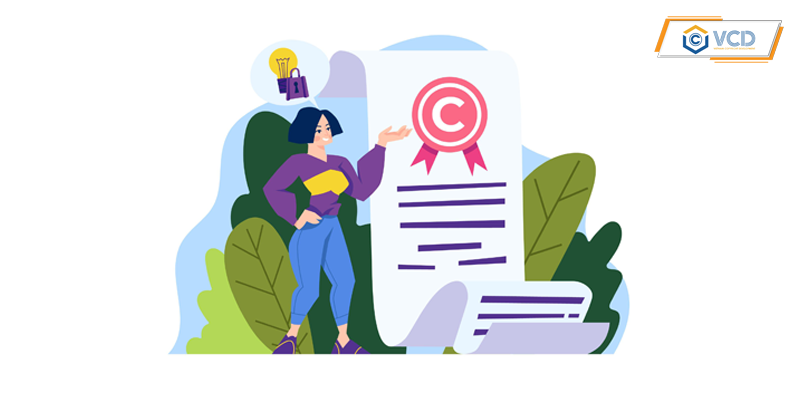Is copyright appropriation a copyright infringement without copyright registration?
In fact, there are many disputes about intellectual property infringement in general and copyright and related rights in particular. Copyright not only ensures the interests of the author but also promotes creativity and the development of culture and art in society. However, copyright infringement, especially appropriation, is taking place in a sophisticated and widespread manner. So, is copyright appropriation a copyright infringement when copyright has not been registered? The following article by VCD will help you.
1. Concept of copyright appropriation.
Appropriation is the infringement of ownership rights by stealing another person’s property for personal use.
Copyright according to Clause 2, Article 4 of the current Intellectual Property Law is the right of an organization or individual to a work that they have created or owned. In which, copyright subjects include literary, artistic, scientific works; copyright-related rights subjects include performances, sound recordings, video recordings, broadcast programs, and encrypted satellite signals.
Copyright appropriation is understood as the act of using all means such as force, fraud, theft, abuse, and trust to illegally make the copyright of a literary, artistic work, etc. belong to oneself.

2. Is copyright appropriation a copyright infringement without copyright registration?
The Law amending and supplementing the Law on Intellectual Property in 2022 clearly stipulates acts of copyright infringement and appropriation, in order to protect the rights of authors and copyright owners. Below are those acts:
- Appropriation of copyright for literary, artistic, and scientific works.
- Infringement of personal rights, as prescribed in Article 19 of the Law.
- Infringement of property rights, as prescribed in Article 20 of the Law.
- Failure to perform or incomplete performance of obligations, as prescribed in Articles 25, 25a and 26 of the Law.
- Intentionally cancelling or invalidating effective technological measures implemented by authors or copyright owners to protect copyright.
- Manufacturing, distributing, importing, offering for sale, promoting, advertising, marketing, leasing or storing devices or products for commercial purposes, knowing or having grounds to know that they are used to invalidate technological measures to protect copyright.
- Intentionally deleting, removing or changing rights management information without the permission of the author or copyright owner, if knowing or having grounds to know that it incites or facilitates acts of copyright infringement.
- Intentionally distributing, importing for distribution, broadcasting, communicating or providing to the public copies of works when knowing or having grounds to know that the copyright management information has been deleted, removed or changed without the permission of the copyright owner.
- Not implementing or not fully implementing the provisions to be exempted from legal liability of the enterprise providing intermediary services, as prescribed in Clause 3, Article 198b of the Law.
Therefore, appropriation of copyright is an act of copyright infringement according to the provisions of the Law on Intellectual Property.
According to the provisions of the Law on Intellectual Property, copyright arises automatically when a work is created, regardless of registration. This means that the author has the right to protect his work from the moment it is created, regardless of whether the work is registered or not. Therefore, appropriation of copyright is still considered an act of copyright infringement, even if the work has not been registered for copyright.
However, copyright registration plays an important role in strengthening evidence of ownership and facilitating the protection of the author’s rights in the event of a dispute. If another person or organization appropriates a work without the author’s consent, this action is still an infringement of copyright and a violation of copyright, regardless of whether it is registered or not.
According to Article 200 of the current Intellectual Property Law, the authority to handle copyright infringement in general is as follows: In violation of their duties and powers, the Court, Inspectorate, Market Management, Customs, Police, and People’s Committees at all levels have the authority to handle copyright infringement.
In conclusion, the authority to handle those who appropriate another person’s copyright is the Court, Inspectorate, Market Management, Customs, Police, and People’s Committees at all levels, depending on the nature of the case.
Above is the article “Is copyright appropriation a copyright infringement without registering copyright?” that VCD sends to you. We hope this article is useful to you.
Sincerely,
